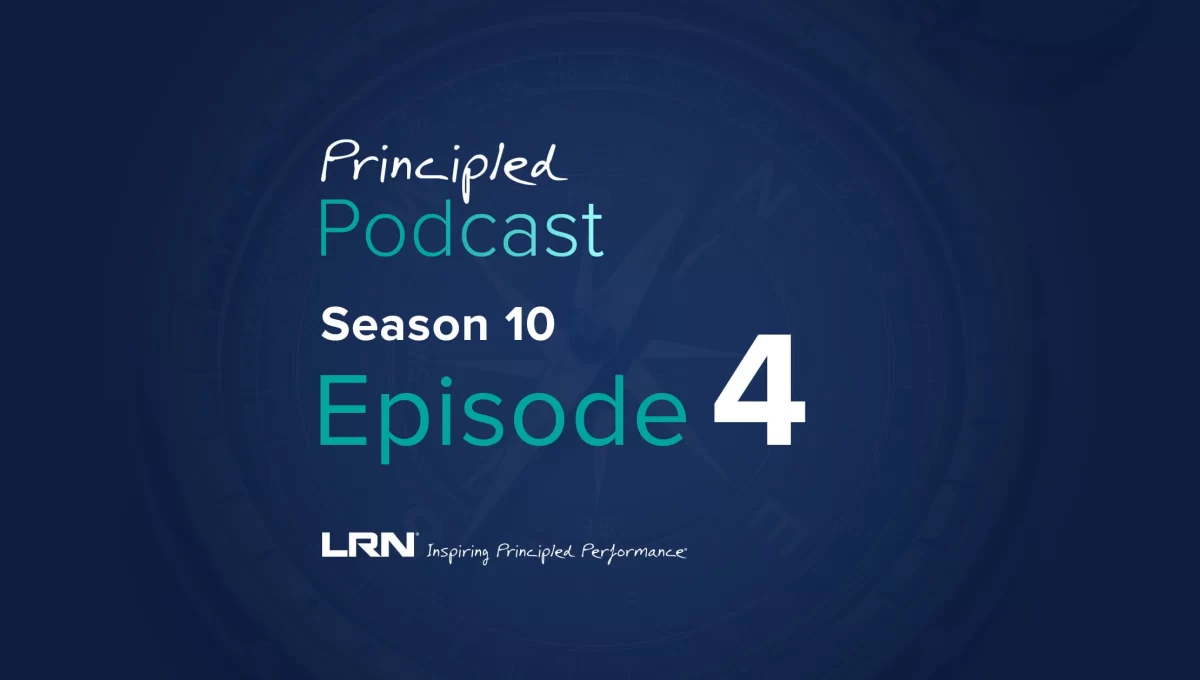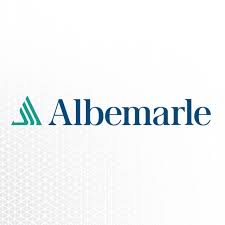What you’ll learn on this podcast episode
ChatGPT and other generative AI tools have caused a sensation in the marketplace. Some are heralding AI as the best innovation to come along since the internet, while others are fearful of its unforeseen, large-scale impact. For the E&C practitioner, what are the major risks and mitigation strategies that need to be in place? On this episode of LRN’s Principled Podcast, host Susan Divers explores the current and evolving risk landscape surrounding ChatGPT and generative AI with Jonathan Armstrong, a partner at the legal compliance firm Cordery.
Guest: Jonathan Armstrong
Jonathan Armstrong is an experienced lawyer based in London with a concentration on compliance and technology. His practice includes advising multinational companies and their counsel on risk and compliance across Europe. Cordery gives legal and compliance advice to household name corporations on prevention, training, and cure—including internal investigations and dealing with regulatory authorities.
Jonathan has handled legal matters in more than 60 countries involving cybersecurity and ransomware, investigations of various shapes and sizes, bribery and corruption, corporate governance, ethics code implementation, reputation, supply chain, ESG, and global privacy policies. Jonathan has been particularly active in advising multi-national corporations on their response to the UK Bribery Act 2010 and its inter-relationship with the US Foreign Corrupt Practices Act (FCPA).
Jonathan is a co-author of LexisNexis’ definitive work on technology law, “Managing Risk: Technology & Communications.” He is a frequent broadcaster for the BBC and appeared on BBC News 24 as the studio guest on the Walport Review. In addition to being a lawyer, Jonathan is a Fellow of The Chartered Institute of Marketing. He has spoken at conferences in the US, Japan, Canada, China, Brazil, Singapore, Vietnam, the Middle East, and across Europe.
Jonathan qualified as a lawyer in the UK in 1991 and has focused on technology and risk and governance matters for more than 20 years. He is regarded as a leading expert in compliance matters. Jonathan has been selected as one of the Thomson Reuters stand-out lawyers for 2023 —an honor bestowed on him every year since the survey began. In April 2017, Thomson Reuters listed Jonathan as the 6th most influential figure in risk, compliance and fintech in the UK. In 2016 Jonathan was ranked as the 14th most influential figure in data security worldwide by Onalytica. In 2019 Jonathan was the recipient of a Security Serious Unsung Heroes Award for his work in Information Security. Jonathan is listed as a Super Lawyer and has been listed in Legal Experts from 2002 to date.
Jonathan is the former trustee of a children’s music charity and the longstanding co-chair of the New York State Bar Associations Rapid Response Taskforce, which has led the response to world events in a number of countries including Afghanistan, France, Pakistan, Poland, and Ukraine.
In July 2023 Jonathan was appointed to the New York State Bar Association Presidential Task Force on Artificial Intelligence. Jonathan sits on the Task Force with leading practitioners, regulators, judges and academics to develop frameworks for the use and control of AI in the legal system.
Susan Divers is a senior advisor with LRN Corporation. In that capacity, Ms. Divers brings her 30+ years’ accomplishments and experience in the ethics and compliance area to LRN partners and colleagues. This expertise includes building state-of-the-art compliance programs infused with values, designing user-friendly means of engaging and informing employees, fostering an embedded culture of compliance and substantial subject matter expertise in anti-corruption, export controls, sanctions, and other key areas of compliance.
Prior to joining LRN, Mrs. Divers served as AECOM’s Assistant General for Global Ethics & Compliance and Chief Ethics & Compliance Officer. Under her leadership, AECOM’s ethics and compliance program garnered six external awards in recognition of its effectiveness and Mrs. Divers’ thought leadership in the ethics field. In 2011, Mrs. Divers received the AECOM CEO Award of Excellence, which recognized her work in advancing the company’s ethics and compliance program.
Mrs. Divers’ background includes more than thirty years’ experience practicing law in these areas. Before joining AECOM, she worked at SAIC and Lockheed Martin in the international compliance area. Prior to that, she was a partner with the DC office of Sonnenschein, Nath & Rosenthal. She also spent four years in London and is qualified as a Solicitor to the High Court of England and Wales, practicing in the international arena with the law firms of Theodore Goddard & Co. and Herbert Smith & Co. She also served as an attorney in the Office of the Legal Advisor at the Department of State and was a member of the U.S. delegation to the UN working on the first anti-corruption multilateral treaty initiative.
Mrs. Divers is a member of the DC Bar and a graduate of Trinity College, Washington D.C. and of the National Law Center of George Washington University. In 2011, 2012, 2013 and 2014 Ethisphere Magazine listed her as one the “Attorneys Who Matter” in the ethics & compliance area. She is a member of the Advisory Boards of the Rutgers University Center for Ethical Behavior and served as a member of the Board of Directors for the Institute for Practical Training from 2005-2008.
She resides in Northern Virginia and is a frequent speaker, writer and commentator on ethics and compliance topics. Mrs. Divers’ most recent publication is “Balancing Best Practices and Reality in Compliance,” published by Compliance Week in February 2015. In her spare time, she mentors veteran and university students and enjoys outdoor activities.








